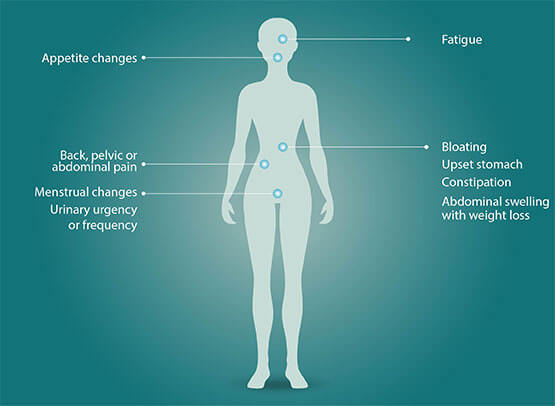Symptoms and Detection
Ovarian cancer does have symptoms, but they are usually subtle and easily mistaken for other, more common problems. In some cases, early stage ovarian cancers produce symptoms, but in many women symptoms don’t show up until the cancer has advanced.
Women with ovarian cancer report that symptoms are persistent and represent a change from their normal bodies. The frequency and/or number of such symptoms are key factors in the diagnosis of ovarian cancer. Several studies show that ovarian cancer can produce these symptoms:
- Bloating
- Pelvic or abdominal pain
- Difficulty eating or feeling full quickly
- Urinary symptoms (urgency or frequency)
See your doctor, preferably a gynecologist, if you have these symptoms for more than two weeks, and the symptoms are new or unusual for you.

Other Symptoms Associated with Ovarian Cancer
Several other symptoms have been commonly reported by women with ovarian cancer. These symptoms include fatigue, indigestion, back pain, pain with intercourse, constipation and menstrual irregularities. However, these other symptoms are not as useful in identifying ovarian cancer because they are also found in equal frequency in women in the general population who do not have ovarian cancer.